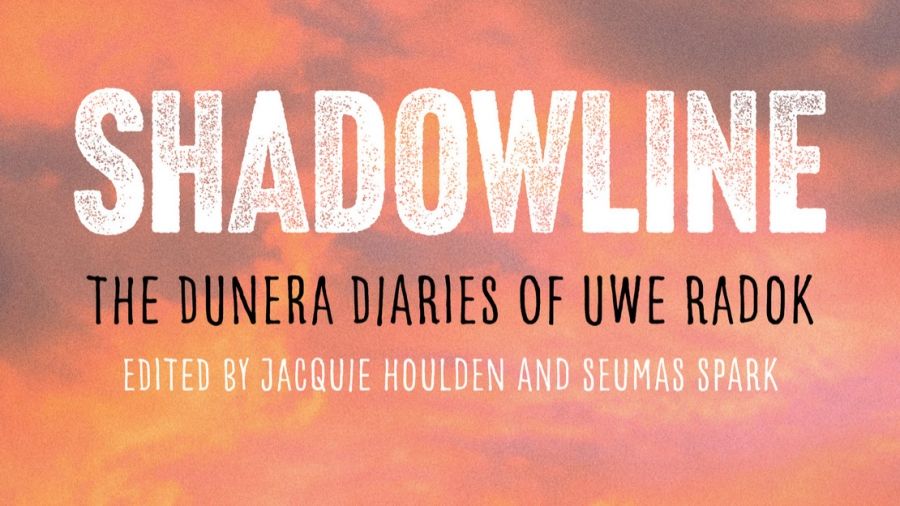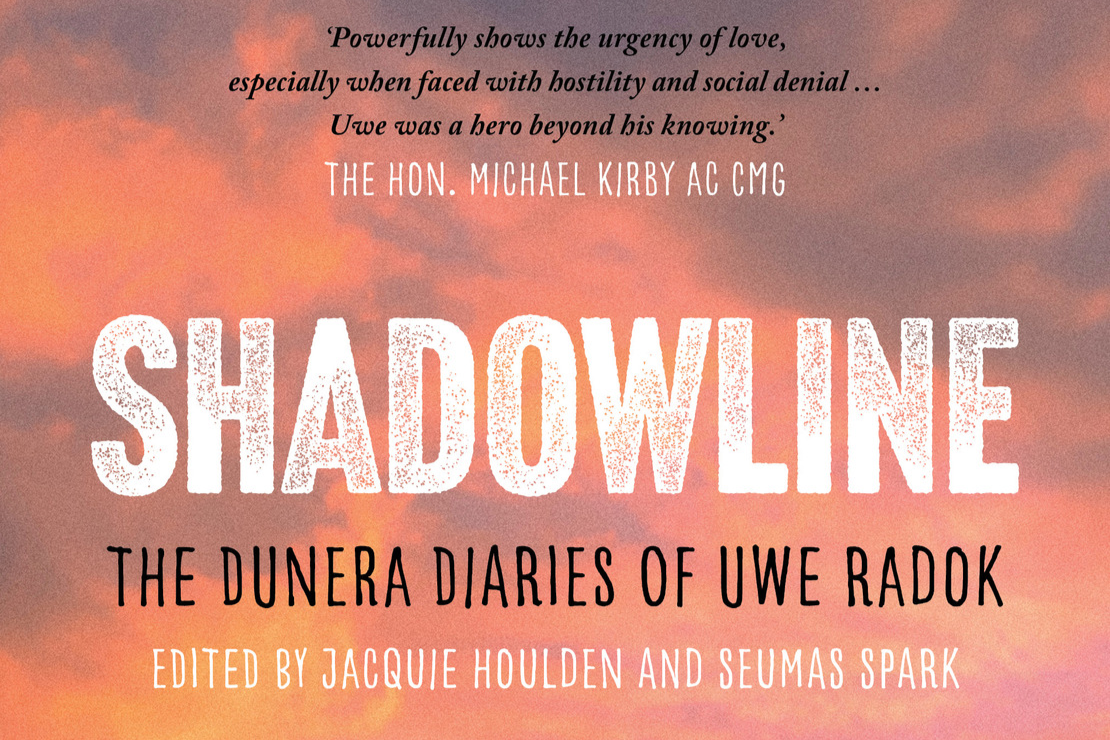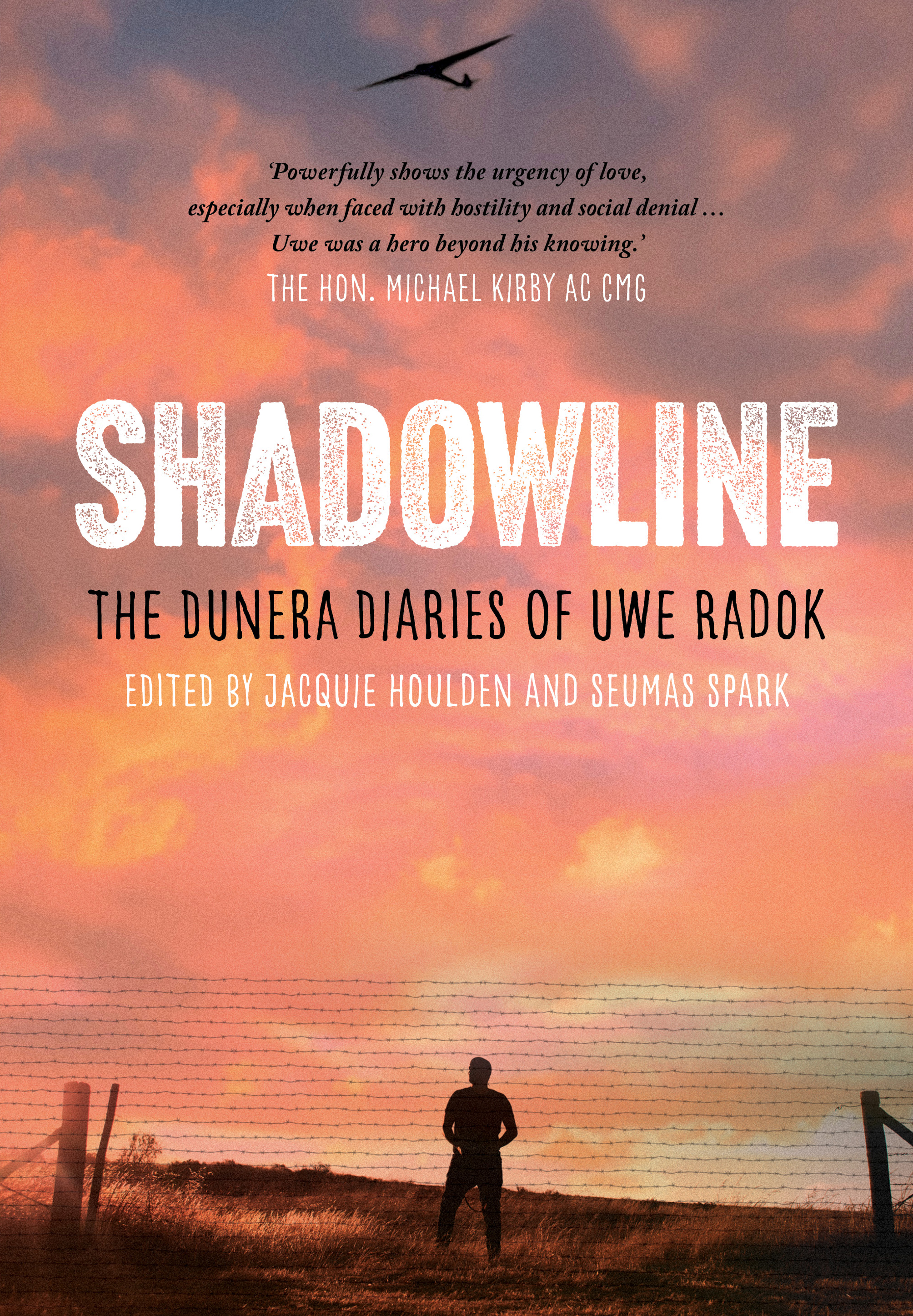
- Free Article: No
- Contents Category: History
- Review Article: Yes
- Article Title: Wartime fates
- Article Subtitle: A remarkable snapshot from Dunera
- Online Only: No
- Custom Highlight Text:
Uwe Radok was born in 1916 in East Prussia to a family of Christian converts who identified as German Protestant. Nevertheless, after the Nazis came to power in Germany, the Radoks were classified as Jews – their five children Mischlinge, of mixed ancestry. In 1938, the family applied to emigrate to Australia. When their visas finally arrived in August 1939, it was too late.
- Featured Image (400px * 250px):

- Alt Tag (Featured Image): Francesca Sasnaitis reviews 'Shadowline: The Dunera diaries of Uwe Radok', edited by Jacquie Houlden and Seumas Spark
- Book 1 Title: Shadowline
- Book 1 Subtitle: The Dunera diaries of Uwe Radok
- Book 1 Biblio: Monash University Publishing, $34.99 pb, 189 pp
- Book 1 Cover Small (400 x 600):

- Book 1 Cover (800 x 1200):

There are people who were treated particularly badly every time the democracies expressed themselves compassionately, and now they sit behind the democratic barbed wire as dangerous enemy aliens, while outside the fight for justice and freedom is being fought. Redesign required.
Otherwise, Radok is constantly pushing himself to learn, to work, to give meaning to his enforced isolation from normal life. He is articulate about the effects of the Arandora Star’s torpedoing – constant dread, panic, ‘trembling like an animal’ – but generally takes the cataclysmic events in his life without undue perturbation. ‘This is one of the milder of wartime fates,’ he says of the looting aboard the Dunera. His philosophical attitude to the barbarities inflicted on the internees by the Dunera guards can be attributed to the numbness induced by shock: ‘suddenly everything loses its meaning; one cannot do anything more than die. A strange sense of calm at this thought alone.’
Radok comes across as an intellectual, a cultured man. The diaries’ appeal is partly due to his many literary and musical references, his self-awareness and passion for self-improvement, for learning everything from languages to carpentry to mathematics. One might interpret his many obsessions as a survival mechanism, distractions from the grim reality of internment, but they also speak to an eclectic interest in science and the arts. He is saved from arrogance only by the occasional foundering of his convictions.
Most interestingly, it is not to resolve any persistent trauma that Radok begins reading Freud and Jung, but to glean some understanding of what he refers to as his neurosis. It is at the internment camp in Tatura, about 180 kilometres north of Melbourne, that the tenor of the diaries changes. Here, Uwe meets and becomes infatuated with Fred, a narcissistic individual with whom he has a volatile relationship. Uwe’s attempts to please, to educate, and to influence backfire. He has time to reflect, not only on his future beyond release from internment but also, importantly, on his sexuality. Although his language is couched in euphemism (‘hunger’ for desire; ‘starvation’ for abstinence) and his sexual experiences remain cryptic (‘snoozing’ for intercourse?), Uwe is remarkably open about his attraction to both men and women. It is in Tatura that he meets the fifteen-year-old Anita Holper, whom he will later marry despite warnings from friends that she is not his equal. The diaries end on an encouraging note: ‘She’s not the proper person yet altogether, but more completely than anyone before her.’
Understandably, the diary entries of this period speak of fragmentation and anxiety. At one point, Radok proposes listing the pros and cons of suicide – ‘too theoretical to be of value’, he concludes. He equates sexual frustration with loss of energy and an uncertainty that affects his ‘purpose and ambition’, and has trouble reconciling same-sex desire with fulfilment in a heterosexual marriage. That ‘the objective after all is marriage’ is undisputed.
In what is a perspicacious piece of literary criticism, Radok unwittingly provides us with a key to reading the diaries. After ‘a weary start, annoyed at having to get into stride,’ he finds Dostoevsky’s Demons ‘fascinating’.
This is the way a book ought to be written – not a minute explanation of complicated feelings and experiences that it is far more satisfactory to have for oneself, but a terse collection of facts and remarks, from which one has to get the mental position of the persons presented. It takes some capability to integrate things seen from near, to the picture they represent from a great distance.
From fragments to bigger picture, this remarkable document is a snapshot of extraordinary resilience written by an ever-inquisitive man with the capacity to express the results of his self-analysis. If the selected diary entries are at times impenetrable, it must be remembered that Radok wrote for himself alone – ‘Why is it things I feel completely sure about get blurred when I try to put them into words for others?’ – not for strangers. Further elucidation from the editors – his daughter Jacquie Houlden and historian Seumas Spark – would have been welcome. A familial interpretation from Houlden might also have provided an interesting counterpoint, but I imagine she wanted her father’s perspective to stand without comment, as it does.


Comments powered by CComment